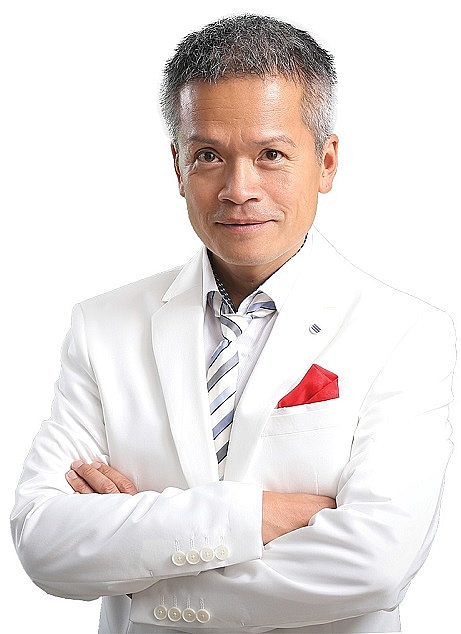Fuelling up tomorrow’s high-quality workers in IT
 |
| Chinh Phan |
What is your opinion of the current status of technology education and training in Vietnam?
The current education system as a whole in Vietnam is lagging behind and is unable to fulfil the demand at the speed required by Industry 4.0. Despite government efforts with the accreditation of more vocational training centres and other measures, the gap still exists. For example, in 2017, only 16 per cent of 700,000 IT graduates found a job in their area of specialisation, which is a waste. Education does not need a transformation, but a revolution.
How would you rank the ability of the majority of Vietnamese IT graduates, and what are the factors behind it?
The standard is below average. Of course, there are outstanding Vietnamese IT talents winning international awards but this number is so small compared to the hundreds of thousands of IT graduates who don’t satisfy the industry’s requirements.
The main reason is that the vast majority of students do not have what I would call a business and future-ready mindset: a set of skills such as critical thinking, problem solving, employability, and collective intelligence which would help them to embrace the future with confidence, innovation, and creativity.
In what ways have businesses such as Intek been tapping into the Vietnamese high-productivity and high-quality labour market, and has the education link between the institute and other businesses been promoted to its full potential?
Intek is fuelled by three mottos: being disruptive, scalable, and sustainable. First, Intek is disruptive – no one can predict the future. So we focus on learning how to become future-ready through our gamified, peer-to-peer, and real-world project-based learning ecosystem.
Second, we are scalable. Learning is a life-long journey and career changes will occur many times within one’s professional life. Therefore, our learning programmes aim for accessibility to learners of any age and from anywhere thanks to our flagship campuses and mobile campuses, combined with our online tutoring system.
And finally, we maintain sustainability. We aim at creating impact at scale, a huge challenge that we cannot achieve alone. We are therefore building a revenue-sharing model (i.e. a sustainable and active scholarship model) based on an e-sustainability value chain which requires the active involvement of other key players, including social investors who will commit to sustainable philanthropy, IT companies who will secure a sustainable talent pipeline, and students who will be committed and will strive for success.
How do you evaluate the current role of innovation and entrepreneurship programmes in education and training centres, and which important skills do Vietnamese students often lack and need to focus on?
The fuel that is driving the 4.0 era is intelligence. The digital revolution is about people and not about technologies, as innovation comes from people’s creativity and talent. Therefore education is about designing the right environment and ecosystem which will enable people to nurture their inner talent and boost their creativity.
After graduating from Intek, do you provide students with any assistance in finding work abroad?
They will definitely have this opportunity as we provide them with not only technical skills but also project management skills, employability skills, and English skills.
Through the value chain I have mentioned before, we have partnerships with local and international companies and we guarantee our students a qualified IT job upon graduation.
What the stars mean:
★ Poor ★ ★ Promising ★★★ Good ★★★★ Very good ★★★★★ Exceptional
Related Contents
Latest News
More News
- State corporations poised to drive 2026 growth (February 03, 2026 | 13:58)
- Why high-tech talent will define Vietnam’s growth (February 02, 2026 | 10:47)
- FMCG resilience amid varying storms (February 02, 2026 | 10:00)
- Customs reforms strengthen business confidence, support trade growth (February 01, 2026 | 08:20)
- Vietnam and US to launch sixth trade negotiation round (January 30, 2026 | 15:19)
- Digital publishing emerges as key growth driver in Vietnam (January 30, 2026 | 10:59)
- EVN signs key contract for Tri An hydropower expansion (January 30, 2026 | 10:57)
- Vietnam to lead trade growth in ASEAN (January 29, 2026 | 15:08)
- Carlsberg Vietnam delivers Lunar New Year support in central region (January 28, 2026 | 17:19)
- TikTok penalised $35,000 in Vietnam for consumer protection violations (January 28, 2026 | 17:15)

 Tag:
Tag:




















 Mobile Version
Mobile Version